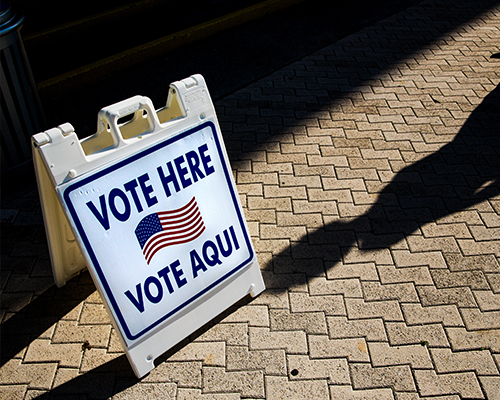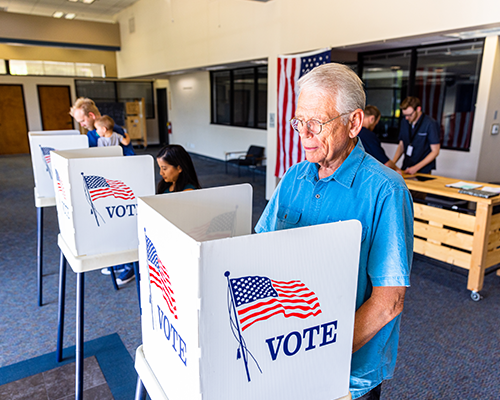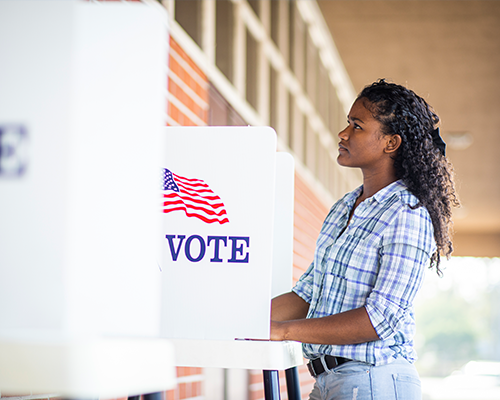How do candidates from different parties win elections
in the same state?







How can one state’s Congressional and Presidential election winners come from different parties?
In Nevada’s 2024 election, a candidate from one party won the popular vote for President, and a candidate from a different party won the popular vote for the U.S. Senate. This kind of result is not unusual – it happened in several states this year, and there’s a long history of similar results throughout the last few decades.
Split ticket outcomes happen more commonly when key races are close. Nevada’s senate race was decided by 24,059 votes.
While many voters do vote for candidates of the same party in every race on their ballot, this practice is not universal. There are a few different things that contribute.
First, some voters choose candidates from two different parties on a single ballot if they feel those candidates will best represent their interests in a given elected role. Split ticket voting can look like someone voting for a Republican for President and a Democrat for U.S. Senator, for example. Individual candidates matter to voters, and their policy positions, name-recognition, controversies, and the amount of money they spend on their campaign can influence voters to vote for different parties in different races.
16 congressional districts across the country split their tickets between Republican and Democratic candidates in 2020. From 1945 to 2020, there have been nearly 200 instances of states voting for one party for president and another for Senate in presidential election years.
Second, some voters choose not to vote in every race on their ballot. That means that the total votes cast for each candidate (and in each race) will be different. This can also be a contributing factor to split ticket outcomes if enough voters choose not to vote in every race.